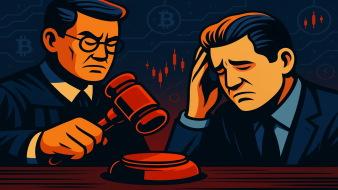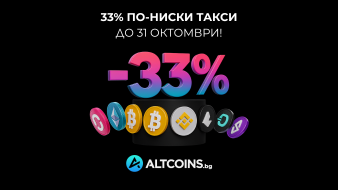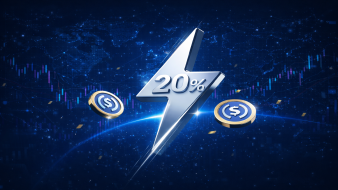Trump's Crypto Project Under Scrutiny: Allegations of Links to North Korea?
The crypto sector in the United States has once again landed in the middle of a political storm. This time, the controversy revolves around World Liberty Financial (WLFI)—a crypto project directly linked to Donald Trump and his family. Two influential Democratic senators, Elizabeth Warren and Jack Reed, are calling on federal authorities to investigate the company over alleged token sales to addresses associated with sanctioned entities in North Korea, Russia, and Iran.
According to CNBC, the senators sent a letter to the Treasury and the Department of Justice claiming that WLFI may have put national security at risk by allowing state-linked foreign actors to gain “governance access” to the protocol through the purchase of governance tokens.
How did it start?
The accusations stem from a report by Accountable.US, claiming WLFI sold tokens to addresses linked to:
– Lazarus Group (a North Korean–linked hacking group)
– a Russian entity connected to sanctions evasion
– an Iranian crypto exchange
– Tornado Cash
WLFI denies the allegations, stating that it conducts “strict AML/KYC checks” and has rejected millions of dollars from participants who failed compliance screening.
The political angle: The Trump family earns 75% of revenues
The case is even more significant because WLFI is not just backed by the Trump brand—it is controlled by the family.
Official information indicates:
– Eric Trump, Donald Trump Jr., and Barron Trump are co-founders
– Donald Trump himself is listed as Co-Founder Emeritus
– A Trump-affiliated entity holds 22.5 billion WLFI tokens, valued at over $3 billion
This means 75% of all token sale revenue flows directly to the Trump family.
According to the senators, this creates a “direct financial conflict of interest” where government decisions could influence personal profits.
New expansion, new risks
WLFI is planning major expansion—including stablecoins, tokenized assets, and a debit card. Warren and Reed argue that insufficient compliance controls could facilitate illicit financial flows.
This comes amid increased geopolitical tension, especially after the project’s USD1 stablecoin was reportedly used in a $2 billion investment into Binance by a UAE-backed fund, shortly before the UAE secured a key chip agreement with the U.S.
A twist: some accusations may be false
The accusations may be based on misleading on-chain data.
Blockchain analyst Nik Bax reviewed the cited transactions and discovered that the “North Korean link” originated from a meme token contract that automatically sends tokens from an address labeled as Lazarus Group to random users.
In other words, there was no direct interaction with state-backed hackers—just a misinterpretation of blockchain activity.
Bax claims that one user was even wrongfully accused, and about $95,000 worth of tokens were frozen as a result.
Why it matters
This case highlights a broader issue:
– crypto is becoming a tool in political warfare
– on-chain data can be easily misinterpreted
– regulation can be shaped by headlines rather than evidence
What happens when a crypto project is both a technology product and a political machine?
Join our community
If you want to follow stories like this and discuss news, regulation, and market developments with people who understand crypto, join our Telegram group. We share updates, analysis, and insights in real time.














